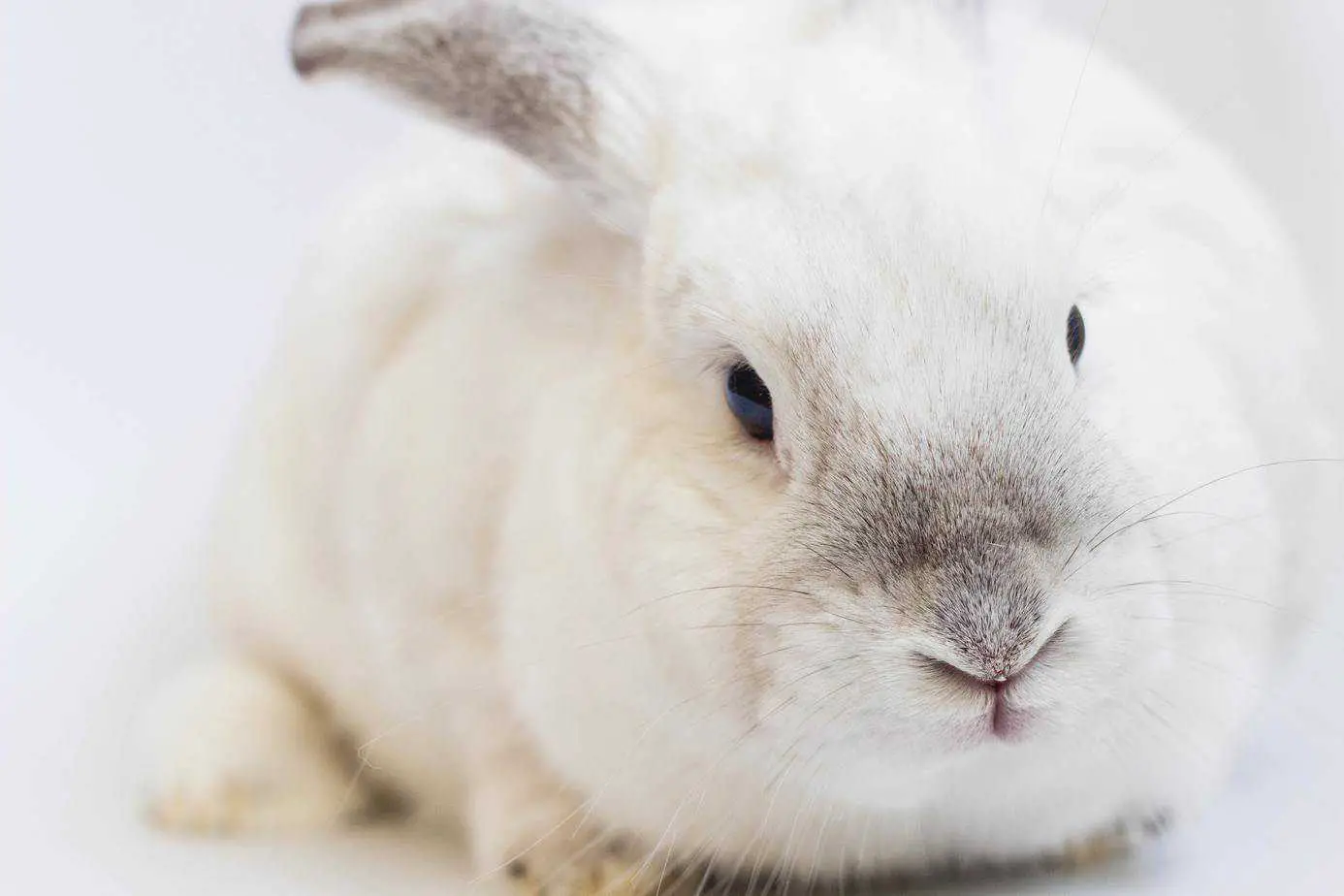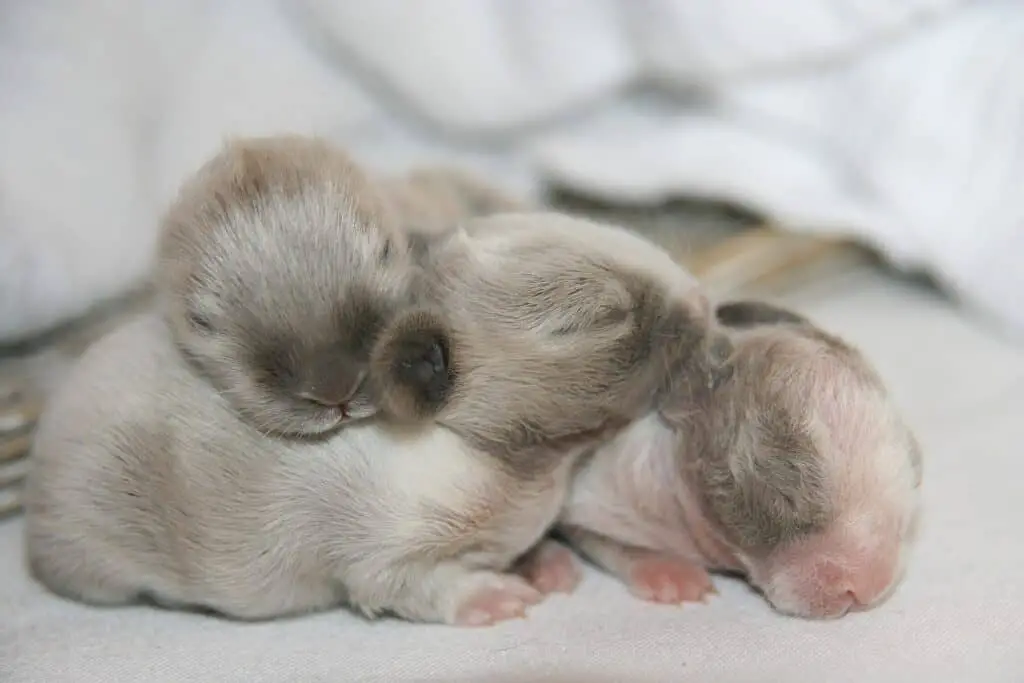
Rabbits are one of the most common mammals found around the world. They are driven by an innate instinct to breed and can have up to nine babies, three or four times a year, with only 15% of them making it to their first birthday. Have you ever wondered if rabbits get sad when their babies die?
Rabbits do not usually get sad when their babies die. While rabbits are capable of experiencing emotions such as grief, they are more likely to manifest sadness when faced with the loss of a bonded partner than with the death of their offspring.
It may be hard to comprehend the fact that a rabbit would not feel sadness when their babies die, but bunnies rarely show sadness for the loss of their offspring. In this article, we will explore some reasons for this seemingly cold behavior as well as some situations your rabbit may be seen to mourn.
The Survival Rate of Baby Rabbits is Very Low
One of the main reasons that rabbits don’t get sad when their babies die results from the extremely low survival rate of their young.
Up to 85% of rabbits will die before their first birthday.
Rabbits can have as many as 60 babies in a year. However, on average, only six or seven of these babies live to one year of age. If rabbits did get sad when their babies died, they would be sad most of the year. It is simply not functional for rabbits to be sad or depressed when they lose offspring. Rabbits have evolved to accept that their babies’ dying is a natural occurrence, and they don’t seem to get hung up on it.
Rabbits are also easily frightened, and many of them die from stress. A rabbit that is suddenly scared or put through stress could easily die. It is in the species’ best interest to avoid stress, including depression, from a lost litter.
Rabbits Don’t Bond With Their Young for Long

Another reason rabbits don’t get sad when their babies die is that they spend very little time bonding with their babies.
Female rabbits will spend an average of 5 minutes a day feeding their young, usually in the morning and evening. However, female rabbits spend most of the day away from the nest.
Baby rabbits, or kits, are weaned off of their mother’s milk as early as three weeks. After this, baby rabbits are on their own for food and nutrition, and they leave the nest to build their own life. Unlike humans, who spend many years caring for their young, rabbits are accustomed to their babies leaving soon after birth.
Female rabbit babies are ready to reproduce themselves at just three or four months of age.
Some Rabbit Mothers Eat Their Young
If there’s one fact that makes it crystal clear that rabbits don’t get sad when their babies die, it’s the fact that female rabbits eat their young.
Female rabbits are known to eat their young for a few different reasons:
- The babies are unhealthy. If the litter is born and it is unhealthy and unlikely to survive, then the mother will eat her litter. This relieves the need to take care of the babies that are going to die anyway. Sometimes, not all of the kits in the litter are unhealthy. In that case, the mother will only eat the babies that are unwell.
- The mother is unhealthy. If the mother herself is unhealthy or lacking nutrients, she may eat her litter. This is thought to be in response to her searching for more nutrition or replacing the vitamins and proteins she lost creating her babies.
- The mother is scared. If the mother is suddenly scared or stressed, she may act out and eat her litter. This is not completely uncommon in rabbits and it shows that they feel different about their young than humans do.
Do Rabbits Experience Emotions?
Just because rabbits don’t get sad when their babies die doesn’t mean that they don’t have any emotions. Rabbits are extremely sensitive mammals that respond in dramatic ways to trauma. Rabbits do not respond well to stress, and they have an extremely sensitive “flight” instinct.
This flight instinct means that rabbits are accustomed to abandoning anything and everything and running away at the first sign of danger. Though rabbits live in small colonies, their natural instinct is to preserve themselves.
Rabbits also experience emotions such as:
- fear
- Love
- Anger
- Anxiety
Additionally, rabbits become accustomed to companionship as well.
Do Rabbits Mourn Their Dead?
While wild rabbits are used to losing those around them regularly, domestic rabbits are known to become attached to their “bonded partner.”
When two rabbits live together for a very long time, they are often referred to as a bonded pair.
Rabbits can live up to ten years, and if they do so in a domestic situation with a bonded rabbit partner, they can become very attached to the other rabbit.
Many rabbit owners have reported their rabbits got sad or depressed when their bonded partner passed away. Some owners even claim that the remaining rabbit died of loneliness.
Rabbits do naturally want to live in pairs or groups, so domesticated rabbits likely want this as well. Rabbits can mourn the loss of a bonded partner and domesticated rabbits could mourn the loss of a litter if stressed or lonely without another rabbit around. This is the most likely time that a rabbit would get sad if their babies die.
A Brief History of Rabbits
The common rabbit, also known as the European rabbit, was extremely popular in Ancient Rome. Thanks to human interference and the versatility of the species, rabbits are currently present on every continent except for Asia and Antarctica. The Middle Ages saw one of the largest spreads of the rabbit due to their domestication and the sale of them for hunting purposes.
Summary
It is out of character for a rabbit to get sad if their babies died. Wild rabbits are extremely accustomed to the loss of those around them, including their own litters. Up to 85% of rabbit young die before their first birthday, so naturally, they have evolved to mate a lot and mourn a little.
Domesticated rabbits are more likely to mourn the loss of a litter or bonded partner. They often, however, don’t react at all. Don’t be alarmed if your rabbit has a litter and doesn’t seem to care too much about them. This is completely normal and is part of the survival method of the species.
